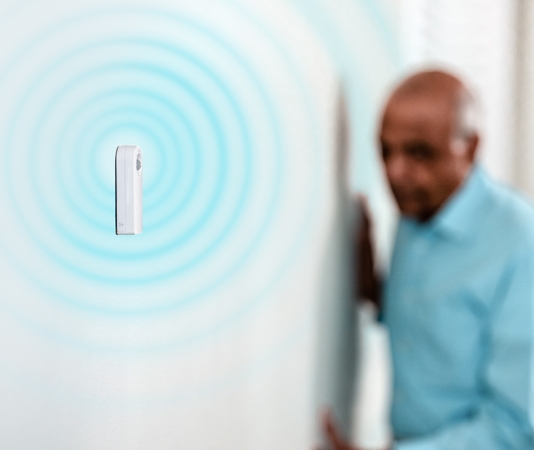When considering care options for elderly loved ones, understanding Activities of Daily Living (ADLs) and Instrumental Activities of Daily Living (IADLs) is crucial. These concepts form the backbone of assessing a senior's care needs and tailoring in-home care services to ensure their comfort, safety, and independence.
At Homewatch CareGivers, we recognize that each individual's journey through aging is unique. By focusing on ADLs and IADLs, we can provide personalized care that truly meets the specific needs of each senior we serve. Let's explore these essential concepts and how they shape the landscape of quality in-home care.
Defining ADLs: The Basics of Daily Care
Activities of Daily Living (ADLs) are the fundamental self-care tasks that individuals need to perform independently to maintain their well-being. These include:
- Bathing and personal hygiene
- Dressing
- Toileting
- Transferring (moving from bed to chair, etc.)
- Eating
For many seniors, maintaining independence in these areas can become challenging. Professional in-home caregivers are trained to assist with ADLs while preserving dignity and promoting as much independence as possible.
Understanding IADLs: Supporting an Independent Lifestyle
Instrumental Activities of Daily Living (IADLs) are more complex tasks that support an independent lifestyle. These activities include:
- Managing medications
- Preparing meals
- Housekeeping and laundry
- Managing finances
- Using the telephone or other communication devices
- Shopping for groceries and necessities
- Transportation
IADLs often require higher levels of physical and cognitive function. Assistance with these tasks can significantly enhance a senior's quality of life and ability to remain in their home.
The Significance of ADLs and IADLs in Assessing Care Needs
Understanding a senior's ability to perform ADLs and IADLs is crucial for several reasons:
- Identifying care requirements
- Assessing both physical and cognitive health
- Determining the level of assistance needed
- Creating personalized care plans
- Monitoring changes in health and independence over time
By evaluating these activities, caregivers and healthcare professionals can develop a comprehensive picture of an individual's needs and capabilities.
How In-Home Care Services Address ADLs and IADLs
Professional in-home care services, like those provided by Homewatch CareGivers, are designed to support seniors with both ADLs and IADLs. Our caregivers are trained to:
- Assist with personal care tasks while maintaining dignity
- Provide medication reminders and support
- Help with meal planning and preparation
- Offer light housekeeping and laundry services
- Accompany clients to appointments and social activities
- Engage in meaningful activities that promote cognitive health
By tailoring our services to each individual's ADL and IADL needs, we ensure that seniors receive the right level of support to maintain their independence and quality of life at home.
The Impact of ADLs and IADLs on Senior Well-being
Maintaining the ability to perform ADLs and IADLs can have a significant positive impact on a senior's overall well-being. Research has shown that independence in these activities is associated with:
- Improved mental health and reduced risk of depression
- Better physical health outcomes
- Enhanced social engagement
- Increased sense of purpose and self-esteem
At Homewatch CareGivers, we strive to support these positive outcomes through our personalized care approach. Our caregivers work to empower seniors, encouraging them to maintain their abilities while providing necessary assistance.
Assessing ADLs and IADLs: A Collaborative Approach
Evaluating a senior's ability to perform ADLs and IADLs is often a collaborative process involving:
- Family members
- Healthcare professionals
- Trained caregivers
This comprehensive assessment helps create a holistic view of the individual's needs and informs the development of an effective care plan. The Centers for Disease Control and Prevention (CDC) provides valuable resources on assessing functional status in older adults, which can be helpful in this process.
Adapting Care as Needs Change
One of the key advantages of focusing on ADLs and IADLs is the ability to adapt care as an individual's needs evolve. Regular reassessments allow caregivers to:
- Identify changes in abilities
- Adjust care plans accordingly
- Introduce new support strategies
- Ensure continuous, appropriate care
This flexible approach ensures that seniors receive the right level of support at all times, promoting their safety and well-being.
The Role of Technology in Supporting ADLs and IADLs
Advancements in technology are playing an increasingly important role in supporting seniors with ADLs and IADLs. From medication reminders to smart home devices, these tools can enhance independence and safety. At Homewatch CareGivers, we stay informed about the latest technological aids that can complement our in-home care services.
For more information on how technology is improving elder care, visit the CDC's page on Technology and Caregiving.
Choosing the Right In-Home Care Provider
When selecting an in-home care provider, it's essential to choose one that understands the importance of ADLs and IADLs in creating personalized care plans. Look for providers that:
- Conduct thorough assessments of ADLs and IADLs
- Offer flexible care plans that adapt to changing needs
- Provide trained caregivers experienced in supporting both ADLs and IADLs
- Emphasize dignity and independence in their care approach
At Homewatch CareGivers, we pride ourselves on meeting these criteria and delivering compassionate, personalized care. Learn more about our Total Care Solutions and how we can support your loved one's unique needs.
Understanding ADLs and IADLs is crucial for ensuring that seniors receive the right level of care to maintain their independence and quality of life. By focusing on these essential activities, we can create personalized care plans that truly meet the needs of each individual.
If you're considering in-home care for a loved one, Homewatch CareGivers is here to help. Our experienced team can assess your family member's ADL and IADL needs and create a tailored care plan that promotes independence, safety, and well-being. Contact us today to learn more about our personalized in-home care services and how we can support your loved one's journey to maintain independence and dignity at home.





.0000000000000.jpg)